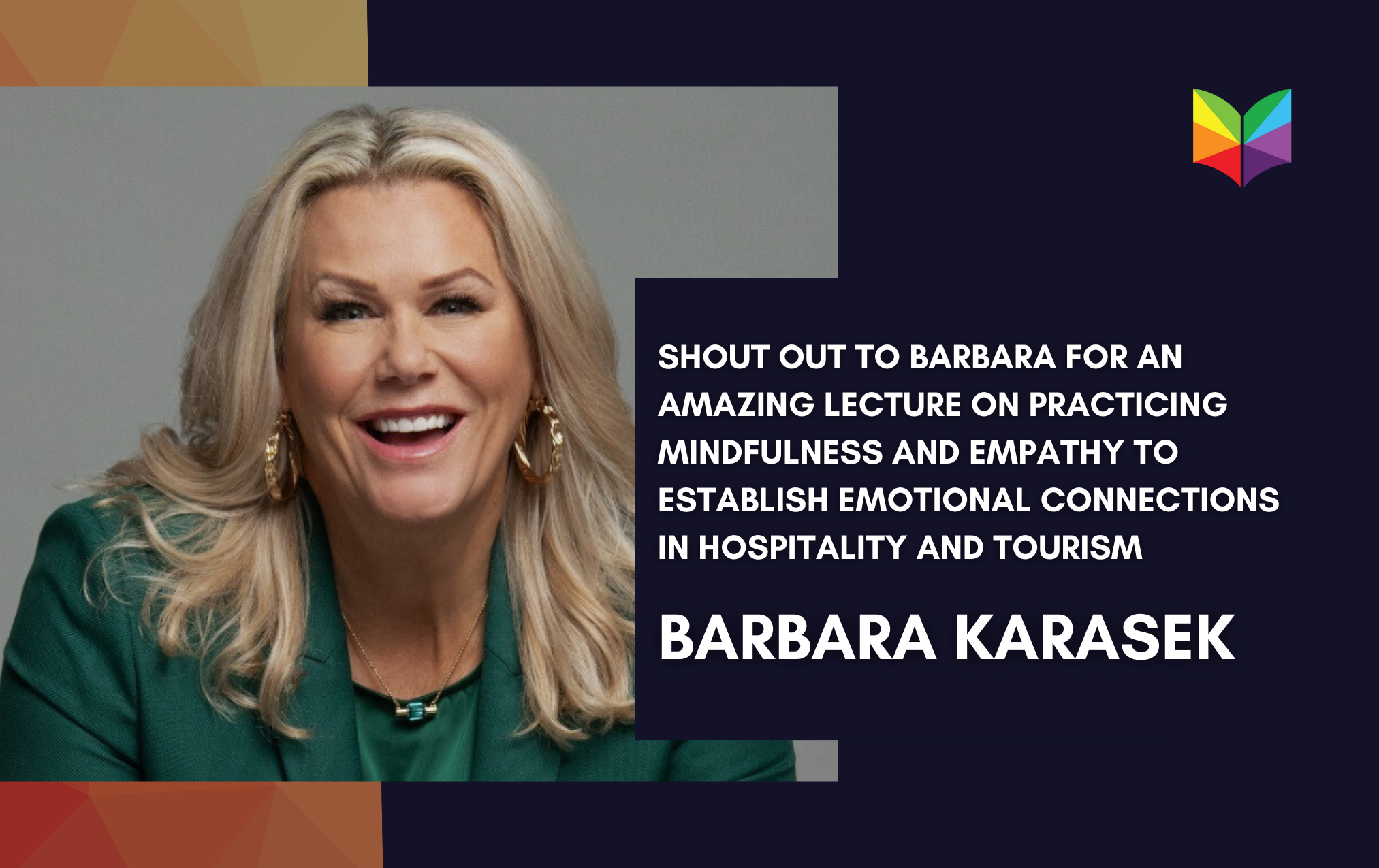
Practicing Mindfulness and Empathy to Establish Emotional Connections in Hospitality and Tourism
Co-founder and CEO Steve Ekstrom welcomes a distinguished guest, Barbara Karasek, CEO and co-owner of Paradise Advertising and Marketing. Barbara, a prominent figure in the tourism industry, shares her invaluable insights on practicing mindfulness and empathy to establish emotional connections in hospitality and tourism. This blog post delves into the essentials of their conversation, focusing on the profound impact these qualities can have on both personal and professional growth.
The Importance of Emotional Connections
Steve opens the session by emphasizing the significance of making emotional connections with people, a sentiment echoed by Barbara Karasek. Barbara introduces herself and her company, Paradise Advertising and Marketing, highlighting their commitment to diversity and social inclusion. She underscores the agency's core values, known as the five C’s: community, care, culture, curiosity, and communication.
Barbara passionately advocates for integrating empathy and mindfulness in leadership. She reflects on her journey, candidly sharing her successes and missteps. Her experiences as a high-performing athlete and a leader in various sectors have taught her the value of empathy and mindfulness, particularly in the travel, tourism, and hospitality industries.
Understanding EQ vs. IQ
Barbara introduces the concept of Emotional Quotient (EQ) versus Intelligence Quotient (IQ), clarifying the distinction and the importance of each in leadership roles. While IQ involves problem-solving and analytical skills, EQ encompasses social skills, emotional management, and self-awareness. These attributes, often overlooked in traditional education and corporate environments, are crucial for fostering meaningful relationships and effective leadership.
The Role of Empathy and Mindfulness
Barbara defines empathy as the ability to understand and share the feelings of others, highlighting its importance in creating deeper connections and improved communication. In the hospitality and tourism industry, where human interactions are paramount, empathy can be a game-changer.
On the other hand, mindfulness is described as being present and engaged in the current moment without judgment. For Barbara, mindfulness is nurtured through practices such as meditation, which helps her stay calm, centered, and prepared for leadership challenges.
Six Habits of Empathetic and Mindful Leaders
Barbara outlines six habits that have helped her become a more empathetic and mindful leader:
- Active Listening: Using two ears and one mouth in proportion to hear and understand others truly.
- Reading Nonverbal Cues: Understanding what people are communicating beyond words.
- Using Imagination: Harnessing a sense of curiosity and wonder to explore new possibilities.
- Embracing Silence: Recognizing the power of staying silent and allowing others to express themselves.
- Seeking Feedback: Encouraging honest, 360-degree feedback to understand how others perceive you.
- Responding When Ready: Taking the time to consider responses rather than reacting impulsively thoughtfully.
Challenges and Strategies for Implementation
One of the challenges Barbara faces is fostering connections in a remote work environment. To overcome this, she emphasizes the importance of regular and personal communication, whether through handwritten notes or virtual interactions. Understanding and addressing the evolving meanings of empathy and mindfulness in different social contexts is also crucial, and she advocates for open and safe discussions on these topics.
Measuring Empathy and Mindfulness
Quantifying the impact of empathy and mindfulness can be challenging. Barbara believes that the accurate measure lies in how actions make others feel. Positive feedback, personal satisfaction, and the overall emotional atmosphere are indicators of success in these areas.
The Future of Empathy and Mindfulness in Tourism
Looking ahead, both Barbara and Steve see an increasing emphasis on mental health, well-being, and self-care within the tourism and hospitality industry. Employee programs focused on these areas are becoming more prevalent, reflecting a broader trend towards more empathetic and mindful workplaces.
A Commitment to Lifelong Learning
In closing, Barbara stresses the importance of congruence—being the same person in professional settings as in personal life. She encourages leaders to embrace vulnerability, seek continuous feedback, and remain open to learning. Steve echoes this sentiment, highlighting the role of technology in fostering empathy and mindfulness in virtual interactions.
By integrating empathy and mindfulness into their leadership practices, professionals in the tourism and hospitality industry can create more meaningful connections, foster better working environments, and ultimately enhance the experiences of those they serve. As Barbara and Steve illustrate, these qualities are not just beneficial—they are essential for the future of the industry.